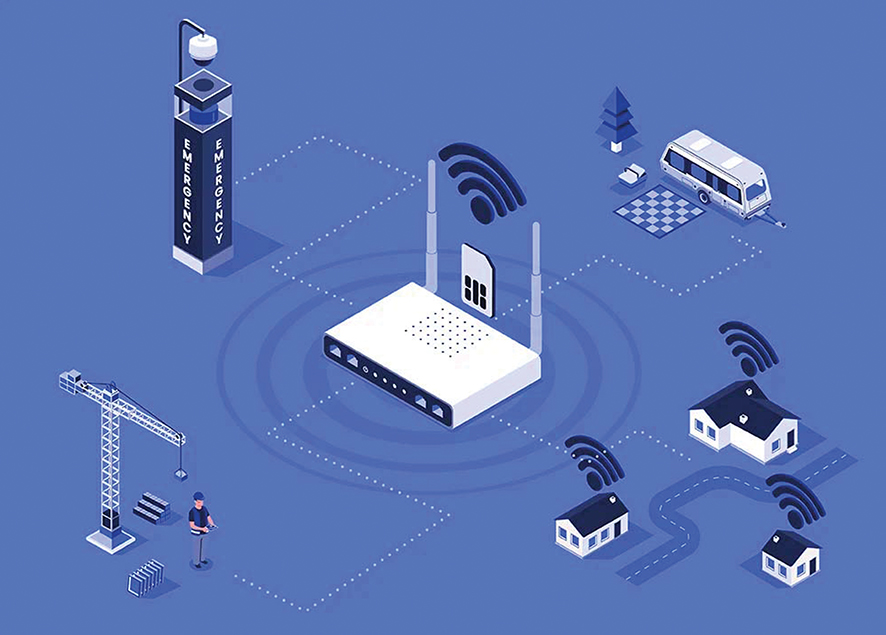In the digital age, a country’s internet infrastructure is more than a technical issue—it is a reflection of economic strategy, social priorities, and even cultural habits. Georgia’s meteoric rise in mobile internet rankings—from 68th to 10th place globally in just a year—suggests a nation on the cutting edge of connectivity. Yet, its continued struggle with fixed broadband (111th place among 154 countries) tells a starkly different story. This paradox raises crucial questions: Why has Georgia prioritized mobile over fixed internet? What does this choice reveal about its social and economic structure? And what are the broader implications for its digital future?
The Mobile Revolution: A Cultural and Economic Imperative
The dramatic leap in mobile internet speeds—from an average of 37.78 Mbps in December 2023 to 140.76 Mbps in December 2024—is largely attributed to aggressive investments by providers like Magti and Cellfie. Magti’s 1.5 Gbps speeds and Cellfie’s 5G rollout have propelled Georgia into the ranks of Luxemburg, Norway, and China in mobile connectivity. But why this emphasis on mobile rather than fixed broadband?
Unlike Western European countries, where fixed broadband has historically been the backbone of digital infrastructure, Georgia—like many post-Soviet and developing nations—has embraced mobile-first connectivity. This trend is not unique: in countries such as India and Kenya, mobile internet has leapfrogged fixed broadband due to affordability and accessibility. The cultural preference for mobile communication in Georgia aligns with global patterns where personal, flexible, and on-the-go internet access is valued over household-based broadband.
Georgia’s fixed-line infrastructure remains a legacy of the Soviet era, where telecommunications were heavily centralized. Unlike fiber-optic networks developed in Western Europe over decades, Georgia’s fixed-line infrastructure was never prioritized post-independence. Instead, the rapid adoption of mobile technology—requiring fewer physical resources—became the preferred path for connectivity.
From a business perspective, mobile networks are more lucrative. A single mobile tower can serve thousands of users across urban and rural areas, whereas fixed broadband requires extensive, costly fiber-optic infrastructure. In a country with diverse geography and a mix of dense cities and remote mountain villages, mobile internet offers a more cost-effective way to provide connectivity.

The Fixed Broadband Crisis: A Structural Challenge
While Georgia’s mobile internet speeds rival those of tech-savvy nations, its fixed broadband situation is closer to that of Haiti and Gabon. The average speed of 42.07 Mbps remains far below global standards, and improvements are slow.
One of the biggest obstacles to fixed broadband development is the rural-urban divide. While Tbilisi enjoys relatively decent wired internet, many regions remain underserved. This mirrors the situation in countries like Brazil and South Africa, where digital inequality prevents economic and educational development outside major cities.
Unlike countries such as South Korea or Sweden, where governments have heavily invested in fiber-optic infrastructure, Georgia has left broadband expansion largely to private companies. Without significant subsidies or regulatory pressure, providers have little incentive to invest in long-term fixed-line development when mobile offers quicker profits.
The reliance on mobile internet, while impressive in the short term, poses risks for Georgia’s digital economy. Businesses, universities, and tech startups require stable, high-speed fixed connections to function competitively on a global scale. Countries like Estonia and Singapore—both digital success stories—have emphasized broadband infrastructure alongside mobile networks, recognizing that a mobile-first strategy alone is insufficient for long-term innovation.
Lessons from the World: Bridging the Divide
Georgia’s digital paradox is not unique, but history offers valuable lessons from other nations that have balanced mobile and fixed broadband development. A global leader in internet speeds, South Korea achieved this through government-driven fiber-optic expansion, making high-speed internet a public priority rather than a private luxury. By legally recognizing broadband as a basic right, Finland has ensured widespread access to both fixed and mobile networks. Once reliant on mobile-first connectivity, Vietnam has recently invested in broadband expansion to support its booming tech industry.
If Georgia wants to position itself as a digital leader, it must address its broadband shortcomings. Following the South Korean model, Georgia could introduce public-private partnerships to accelerate fiber-optic rollout. Closing the digital divide by ensuring that all regions—not just urban centers—have access to high-speed internet. Through tax breaks and grants, the government can encourage companies to invest in broadband infrastructure.
Georgia’s rise in mobile internet speed is a remarkable achievement, reflecting a society that embraces technological progress. However, its weak fixed broadband infrastructure threatens to limit its potential as a digital hub. As the country navigates this paradox, the key question remains: Will Georgia continue to ride the wave of mobile connectivity, or will it recognize that a truly digital future requires strong, stable, and accessible broadband for all?
By Ivan Nechaev














